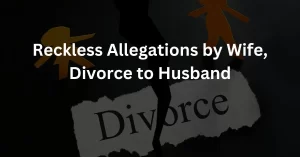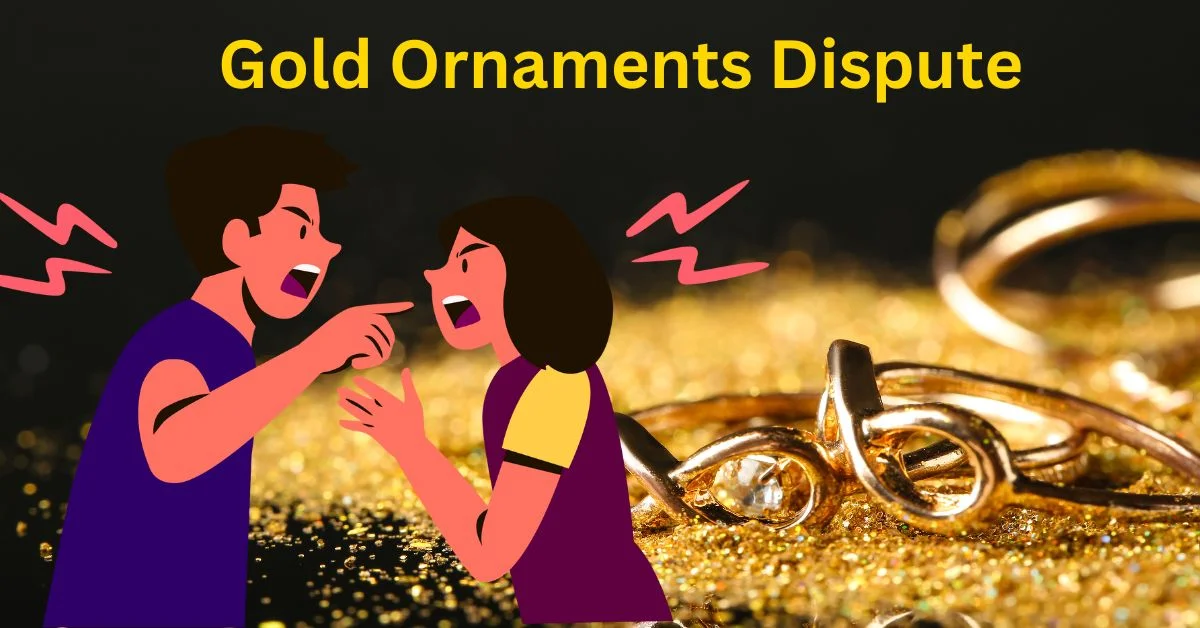The Delhi High Court has granted a divorce to Kulvinder Singh Gehlot, the appellant husband, in a case marred by allegations of cruelty and desertion. The court’s decision comes after an extended legal battle that spanned several years, shedding light on the complexities of matrimonial disputes and the importance of considering mental cruelty as a valid ground for divorce.
Background of the Case
Kulvinder Singh Gehlot and Parmila, his wife, entered into a marital union in accordance with Hindu customs and rites on February 15, 2002. Their union was blessed with two children, Nisha and Rohan, born on November 23, 2003, and July 16, 2006, respectively. However, their journey as a married couple was far from harmonious.
Husband’s Divorce case
The appellant husband had filed for divorce underSection 13(1)(ia) & (ib) of the Hindu Marriage Act, 1956, citing cruelty and desertion as the grounds for seeking separation. In his pursuit of divorce, the appellant husband alleged a series of grievances against his wife. He contended that Parmila had exhibited cruel behavior shortly after their marriage, engaging in frequent quarrels, verbally abusing family members, and using derogatory language. Additionally, he claimed that she left for her parental home just a month after their wedding and returned only after much persuasion.
Furthermore, he asserted that her behavior continued to deteriorate over the years. She would periodically leave the matrimonial home but was brought back after persuasion. The husband even accused Parmila’s family of ill-treatment during a visit to her parental home, resulting in strained relations.
Wife’s Defense in Divorce
In her defense, Parmila asserted that she was subject to harassment and dowry demands by her husband and his family. She claimed that her jewellery was taken away, she was ill-treated, and she was compelled to return to her parental home. Despite repeated apologies and attempts at reconciliation, her husband and his family’s conduct did not improve, making it difficult for her to continue residing in the matrimonial home.
Wife’s Legal Actions
Parmila filed a petition under the Protection of Women from Domestic Violence Act, resulting in a separate room being provided for her residence. Additionally, an FIR was registered against the appellant and his family under Section 498A of IPC based on the respondent’s complaint. However, all the accused, including the appellant and his family members, were eventually acquitted due to a lack of evidence.
Family Court’s Judgment in Divorce Case
The Family Court had dismissed the divorce petition in an order dated February 14, 2019. In this judgment, the Family Court took into account the evidence presented by both parties. The Family Court acknowledged that there were indeed conflicts and turmoil in the marital life of Kulvinder Singh Gehlot and Parmila. However, despite these incidents of wear and tear in their relationship, the specific incidents presented by the appellant did not prove cruelty on the part of Parmila. The court highlighted a crucial point: criminal cases and civil proceedings adhere to different standards of proof, and mere acquittal in a criminal case does not necessarily absolve one of cruelty in a divorce case.
Regarding the allegations of desertion, the Family Court observed that while Parmila had left the matrimonial home on August 2, 2002, this could not be considered without any reason. Moreover, the requisite period of two years for claiming desertion as grounds for divorce had not been completed at the time of filing the petition. Consequently, the divorce petition was dismissed, leading to Kulvinder Singh Gehlot’s decision to appeal to the Delhi High Court.
Appeal in High Court
The appeal in the Delhi High Court marked a critical turning point in this protracted legal battle. Kulvinder Singh Gehlot, dissatisfied with the Family Court’s judgment, sought redress in the High Court. His appeal challenged the order on several grounds, primarily arguing that the evidence had not been appreciated in accordance with the law. He contended that the judgment relied on conjectures and surmises and contradicted previous judgments wherein similar facts had led to divorce being granted.
Judgment
The High Court’s decision, pronounced on August 22, 2023, addressed these arguments and ultimately granted the divorce. The judgment recognized that the parties had been living separately for 17 years, highlighting that such an extended separation, rife with false allegations, police reports, and criminal trials, had caused mental cruelty to both parties.
The High Court emphasized that the continuance of the marriage had become untenable, and any insistence on its preservation would only perpetuate cruelty upon both parties. Consequently, the court dissolved the marriage under Sections Section 13(1)(ia) & (ib) of the Hindu Marriage Act, 1956, marking the end of a contentious legal battle and the beginning of a new chapter for Kulvinder Singh Gehlot
and Parmila.
Conclusion
In light of the evidence and circumstances, the Delhi High Court allowed the appeal in MAT.APP.(F.C.) 144/2019 and granted a divorce to Kulvinder Singh Gehlot. The court held that the marriage had irretrievably broken down, and it would be unrealistic to continue it further. The judgment signifies the court’s recognition of the impact of prolonged separation and false allegations on the mental well-being of the parties involved.



